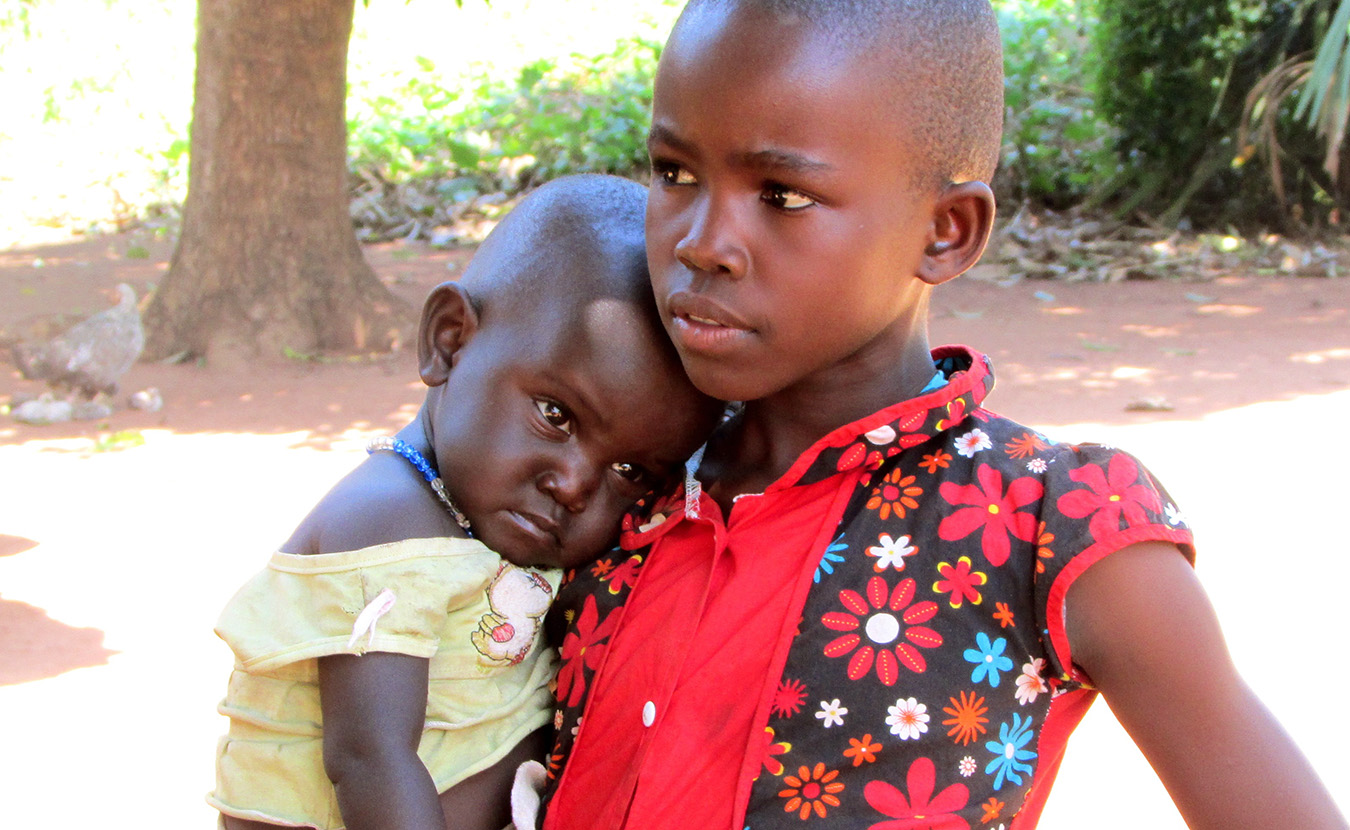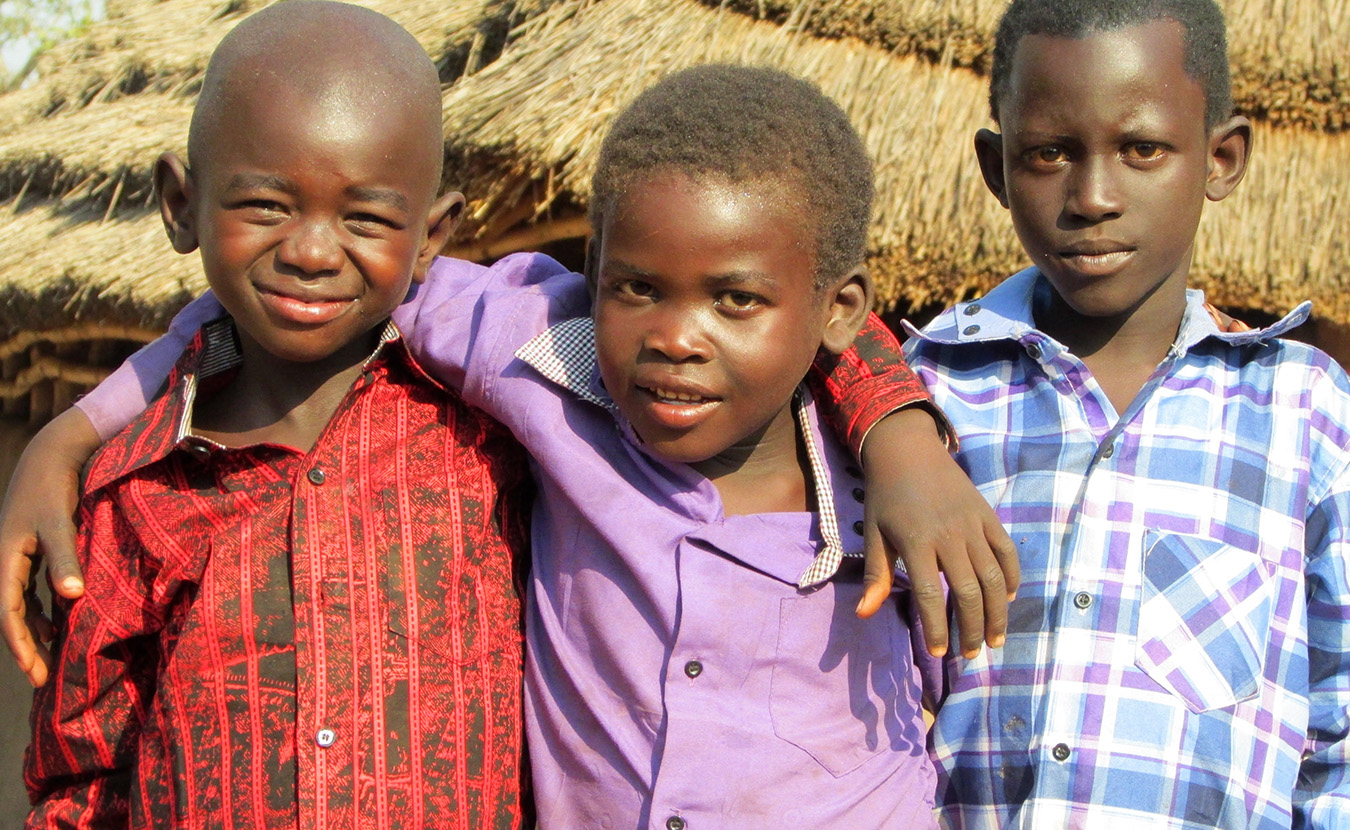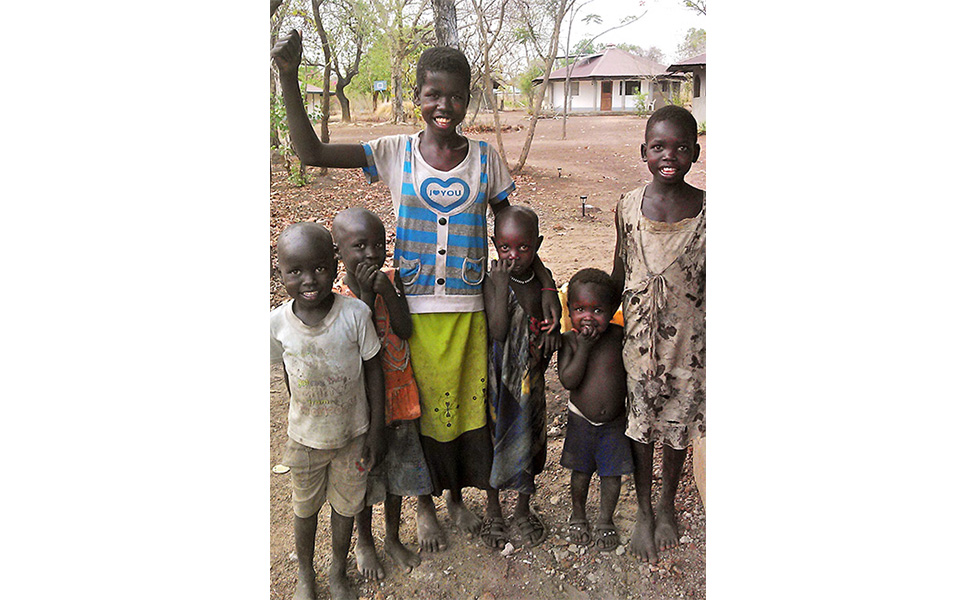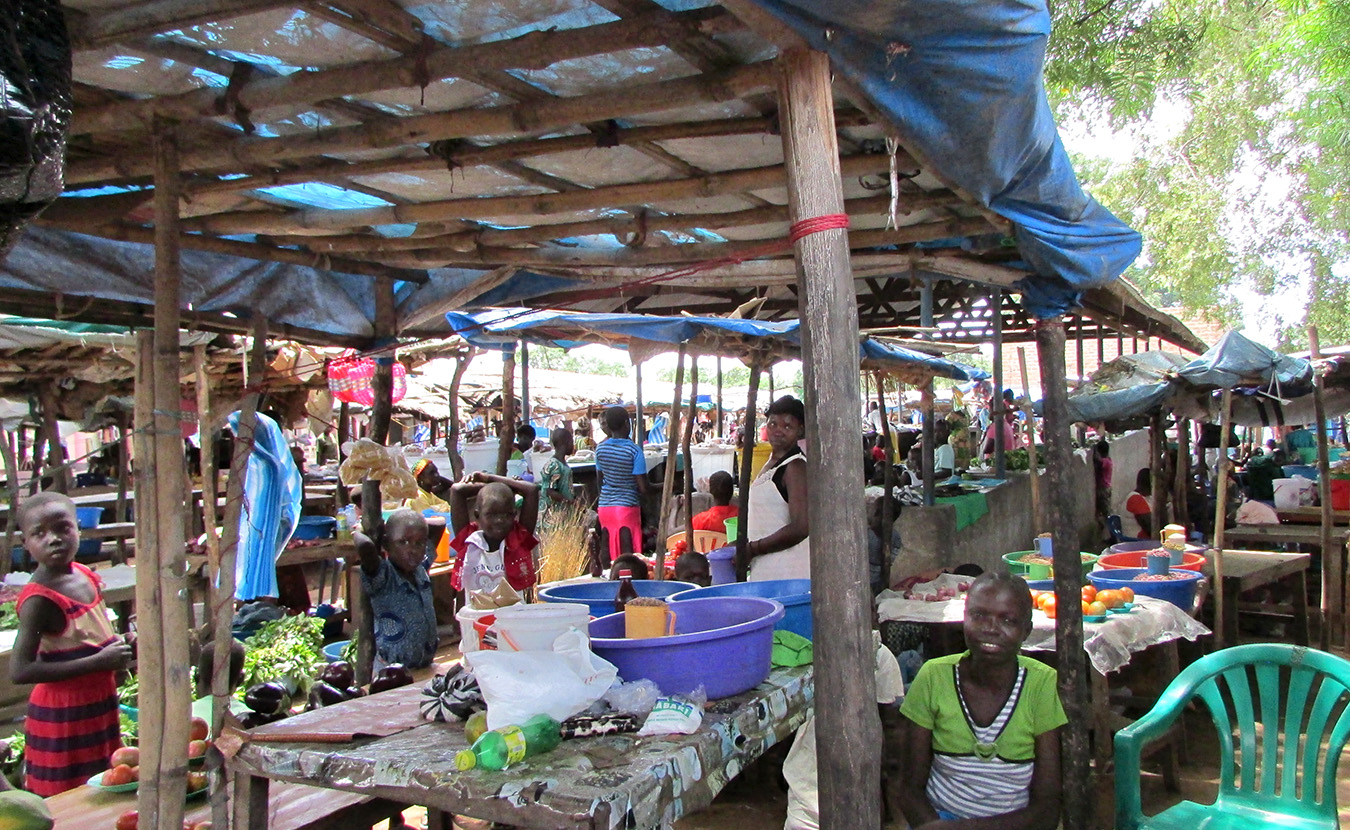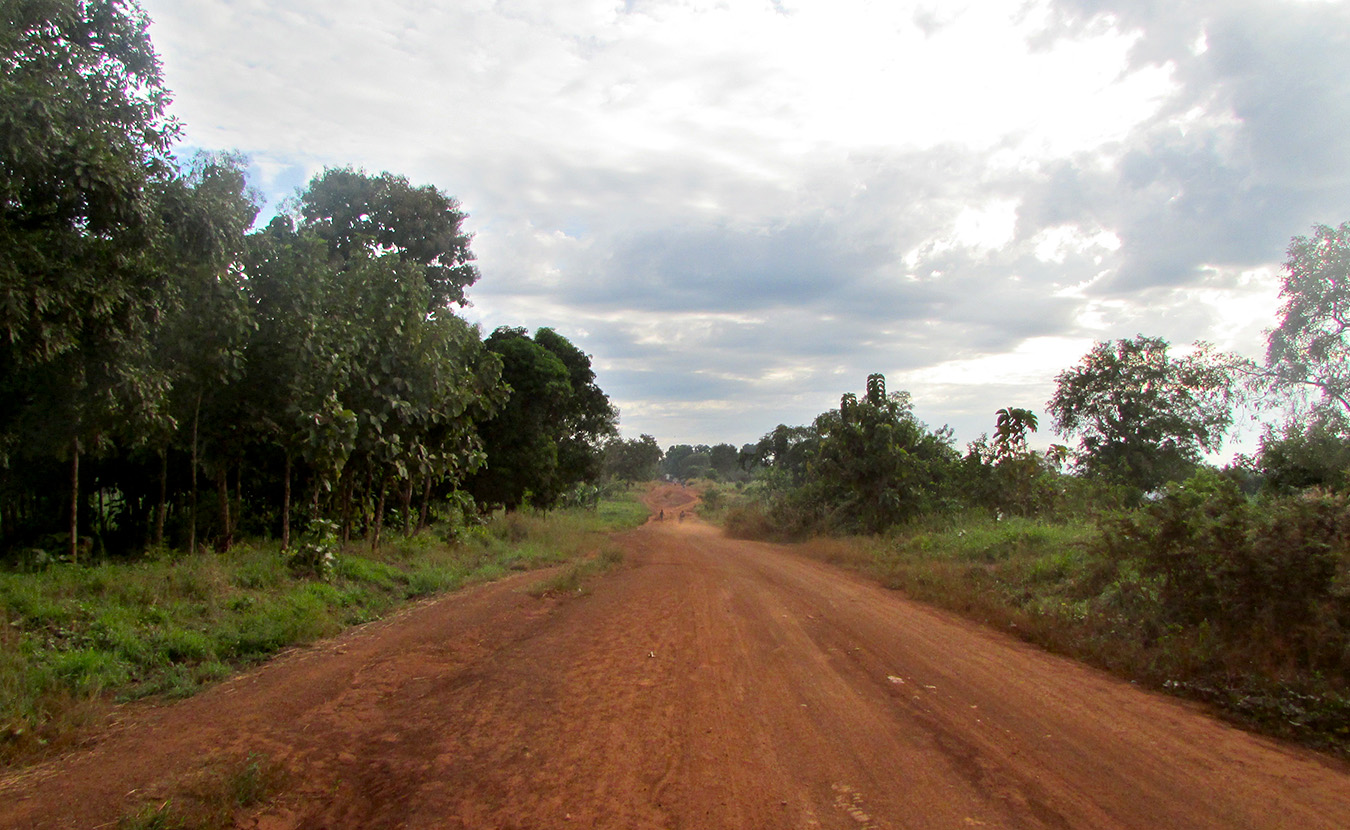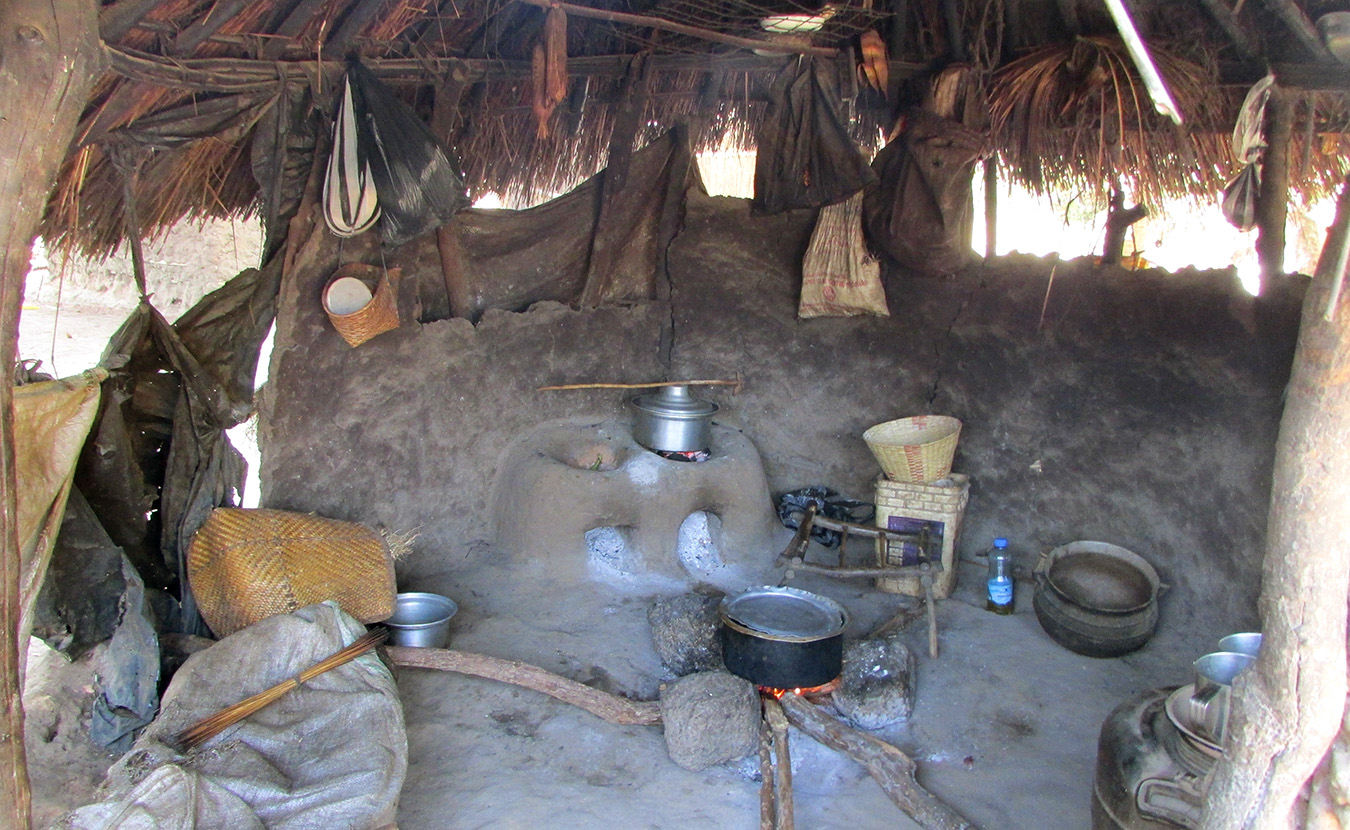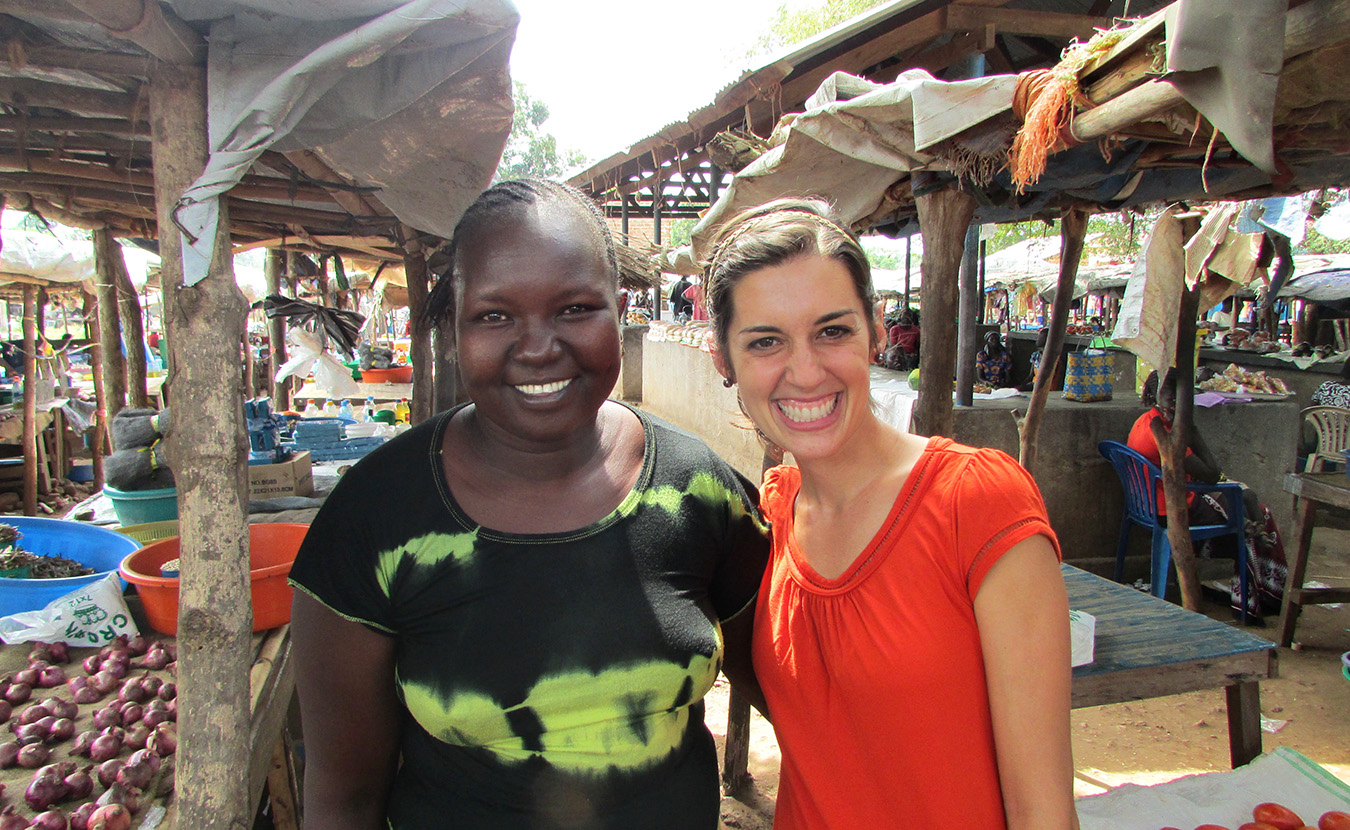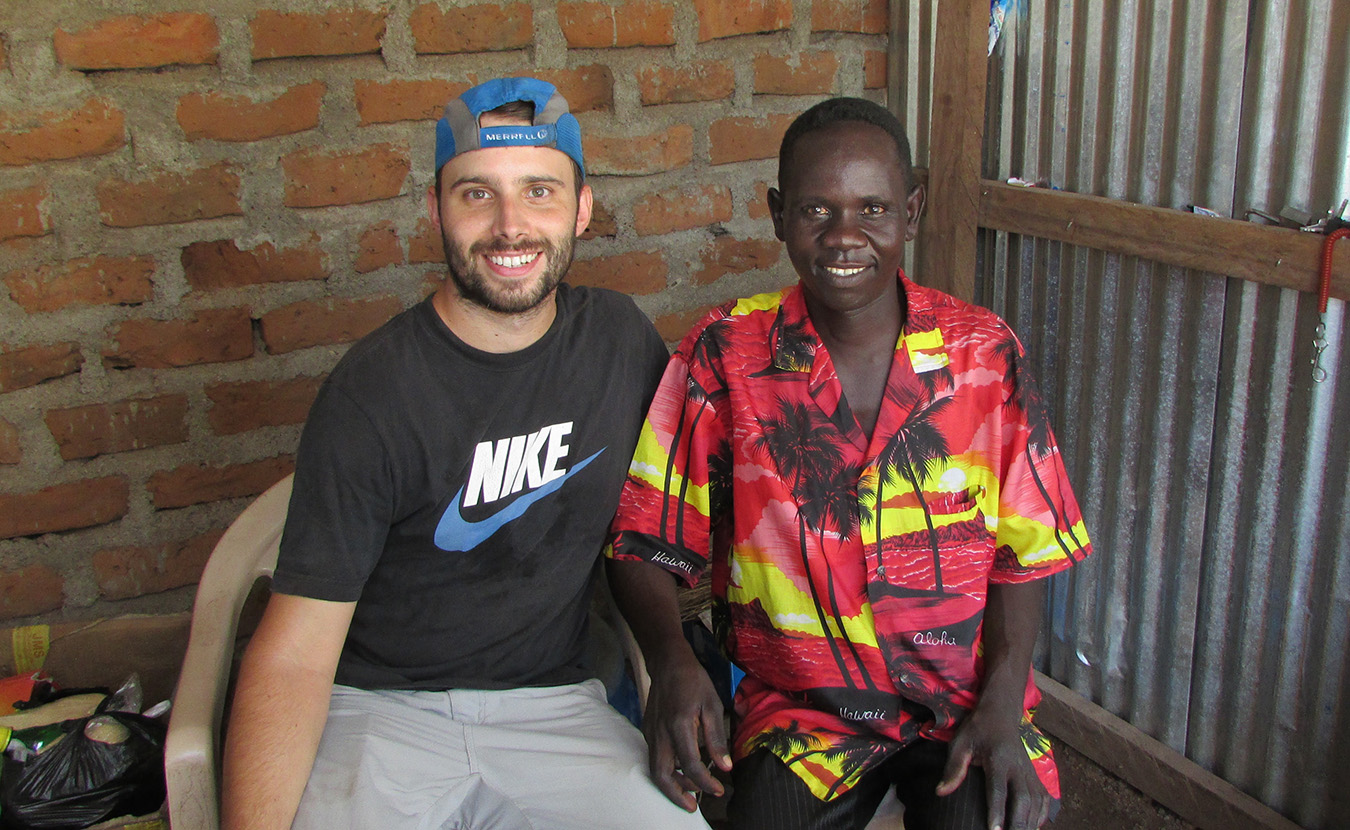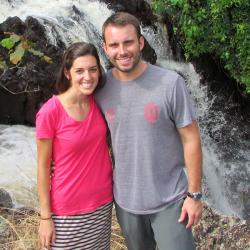Gunfire at night was common. We’d hear it a few times a week, assuming each time it was a drunken soldier shooting into the night sky of South Sudan. But we could tell this time was different. My wife, Theresa, and our team of missionaries had just finished dinner and were preparing to watch a movie when the initial gunfire started. Pop! Pop! Pop-pop-pop….
We had moved to Mundri, about 120 miles northwest of the capital, Juba, in October 2014, and while civil war devastated other parts of the country, Mundri was peaceful. Having spent two years previously in Jos, Nigeria, a city attacked by the militant terrorist group Boko Haram while we were there, we were grateful to be living in a safer, albeit more remote, location. We were excited to learn the language, build relationships with the local Moru people, and learn about their culture.
Three times a week, Theresa and I would ride our bikes two miles on the dirt road from our house to the center of town for our language lessons. We had asked two people, Francis and Mary, to teach us the language. Theresa was learning Moru, the local tribal language. I was learning Juba Arabic, spoken throughout South Sudan. English, while declared one of South Sudan’s official languages, is not widely known, so learning the local languages is a necessity. Francis and Mary each had a small booth in the open-air market, where we joined them for our lessons. I often took snacks to share with Francis and my friend, Makonis, who had a shop next to Francis’s. One of them, upon seeing me with food for all of us, would quickly go and order tea to be brought over as well.
This simple act opened my eyes to the Moru people. While they had limited financial resources due to years of war and lack of development, they were generous and didn’t let their lack be an excuse not to give. A true friendship quickly blossomed from this simple gesture — one I would witness from other Moru.

Mary, Theresa’s language helper, at her booth at the Mundri market. | Photo by Will and Theresa Reed
These relationships also opened doors for the work in community development we were there to do. Theresa is a teacher and wants to see better-trained teachers in developing countries. Education unlocks so many doors; without it, countries have a hard time developing. I was going to help another missionary, Larissa Wolowec, with agricultural projects she had been preparing for years. While some of our close Moru friends had started using the new techniques that Larissa had taught, we wanted to reach more people in Mundri. Our project was to create a small plot of land to demonstrate new agricultural techniques next to another small plot using local techniques. Current Moru practices, such as burning their crops each year after the harvest, often harm farmland. We hoped the differences between the new and the old would push people to ask questions. While my hope was to one day be a team leader in a similar setting, Larissa wanted help, and I was willing to do what was needed at the time.
Although we wanted to help train teachers and start agriculture projects in Mundri, we knew these things ultimately needed to be driven by the local people. We don’t know the best way to address the needs of all the people in Mundri. However, I will say this: We believe it isn’t just an issue of development. It isn’t just about better-trained teachers, greater harvests, or a booming economy. While those things are great and should be worked toward, they don’t eliminate all suffering.
We believe all of us, including the Moru and ourselves, are in need of hope. Hope often unites people around something or someone. Hopelessness leads to unthinkable acts. If we lose hope, suffering wins. We find our hope in Jesus Christ. It’s this hope that pushed Theresa and me to move to rural South Sudan, a country in the midst of a civil war. It’s the hope we find in our Christian faith that allows us to put our own safety and general ease of living to the side. We have this hope in common with the Moru, and it unites us as we seek to partner with them in their development.
‘… and now there is war again’
War is not uncommon in South Sudan. In 2005, after two prolonged periods of civil war (totaling 39 of the previous 50 years), a Comprehensive Peace Agreement was made between Sudan and South Sudan. In 2011, the people of South Sudan voted to create their own country. Their newborn independence was surrounded by much hope for the future of a people who had endured so much suffering.
But in December 2013, fighting broke out again after President Salva Kiir accused the former vice president, Riek Machar, of a coup attempt (which has yet to be verified by any outside source). Many people died in Juba, allegedly for their association with Machar. In response to the allegation of a coup attempt, Machar, who was from a different ethnic group than Kiir, started an all-out rebellion to overthrow the government. This sparked old ethnic and political tensions throughout the country. Since then, independent reports have estimated tens of thousands of people have been killed; roughly 2 million people have fled their homes and remain displaced elsewhere in South Sudan and in the neighboring countries of Uganda, Kenya, Ethiopia, and Sudan; and 4.6 million people — about 40 percent of the population — are in need of food.
A local pastor in Mundri once said he “was born during war, went to primary school during war, graduated both secondary [school] and university during war, got married during war, had kids during war, and now there is war again.”
On December 28 last year, just two months after we had arrived in Mundri, we knew the gunfire we heard that night was different — the shooting didn’t stop after a few rounds. My teammates and I stepped outside to hear where it was coming from. A couple of quick phone calls to friends confirmed a lot of it was coming from the middle of town.
Not knowing what was going on, our missionary team of six adults and four kids started our security checklist: Turn off all lights (including outdoor solar lights), get cell phones, and stay together in one area.
As we did these things, several trucks moved away from the gunfire along the main road a few hundred yards away. It was too dark to see what kind of trucks were passing by us, but we could see the red outline of bullets as they flew over the town. Some of our Moru neighbors ran through our compound, suitcases in hand.
The shooting finally subsided around 9:15 p.m. Sleep was hard to come by as we wondered what had happened.
I can’t tell you exactly what took place in town that night, because, like a lot of things in South Sudan, there isn’t a clear answer. In the midst of all the shooting, only one man was killed. He was a government soldier, head of a local national-security group. He was known as a “very good man” and well liked by the Moru people.
For three days, Mundri was quiet. Then things slowly got back to normal. The market and schools reopened. People went back to work. Within ten days, it was as if nothing had happened.
Getting the story out
Growing up in Bloomington, Indiana, I never expected to live in rural South Sudan. After graduating from Bloomington High School South in 2002 and attending Indiana University, I thought I would find a job, get married, and settle down. Clearly there were different plans. Theresa and I met during college as interns for a ministry working with orphans in Mexico. We married in July 2008 while Theresa was still in college at Miami University in Ohio. While Theresa finished her degree, I worked in the local Oxford Parks and Recreation Department. When she graduated, we moved to Jos, Nigeria, for two years to work with orphans. We returned to Bloomington, uncertain of what we would do next.
Before long, we found ourselves missing Nigeria. We loved the work we had done and the people even more so. While Theresa taught at Edgewood primary and intermediate schools, we started looking at options from different mission agencies. Last October, after only two years back in Bloomington, we were on our way to Africa again, through Serge.
In the weeks after the shooting in Mundri, we continued learning the language and building relationships. In February, Theresa was preparing to train her first teachers at a local church. I had just done a seed distribution (selling seeds, that are typically unavailable locally, for a significant discount) and was preparing a field on our property to begin the demonstration farm.
On March 7, we heard that more government soldiers were on their way to the army base in Mundri. We didn’t hear how many or the reason, but because of the violence in other parts of the country, we were suspicious and concerned enough to evacuate. A service plane from Mission Aviation Fellowship (MAF) came to pick us up within 24 hours at Mundri’s small, dirt runway. MAF took us to Juba, and from there we got a flight to Nairobi, Kenya. In early August, we relocated to Uganda, where we remain today, looking for a temporary place to settle.
We are unable to return to Mundri at this time due to continued instability. We want to find a location with South Sudanese people so we can continue to learn the language and be ready to return to Mundri as soon as possible.
Leaving our friends in Mundri, with concerns about their safety, has been one of the most difficult things I’ve ever done. I’ll never forget the paradox of emotions as I stepped on the plane, grateful to be leaving yet wanting to stay at the same time, while some of our friends waved to us as we took off.
We heard the soldiers left within a few weeks without any issues, but, in May, fighting erupted between government soldiers and the youth in Mundri after a local government official was killed, leading to about 75 percent of the town fleeing to the bush for several days. During the four days of conflict, we were able to talk to our friends on the phone. They told us about their time in the bush, seeing the bodies of young children who had drowned in the river while they tried to flee the fighting, sleeping under trees, fighting off malaria-infected mosquitos, and searching for any food they could find. The people who stayed, mostly men, watched over their homes to make sure they weren’t looted. If needed, they joined in the fighting. Those who didn’t have anyone to watch their houses came back to find their belongings had been looted by government soldiers. Things have calmed down since, but we remain unable to return due to the instability.
The questions I often ask myself are: “What are you willing to expose yourself to? Are you willing to see the suffering of the world? Upon seeing it, are you willing to do anything about it, or, if it doesn’t directly affect you, do you simply move on with little thought?”
Having grown up in Bloomington, I know it is a community of people who aren’t afraid to help those who are being persecuted. We aren’t afraid to fight on behalf of another person. We aren’t afraid to engage with a suffering world.
I believe that most people, upon seeing the suffering of another person, would want to do something to help. I also believe one of the major problems faced by people in places like South Sudan is exposing to the world what is really happening. With no access to the Internet and not having many connections to people outside of South Sudan, there is no way for them to share the depth of their suffering.
Without experiencing it and seeing it for ourselves, the suffering of our world often remains someone else’s problem.
The challenge now is to find the people in places where they can’t get their story out, expose it, and bring hope.
(Updated November 20, 2015) Editor’s note: Since this story was originally published at our launch in September, the conditions have worsened throughout South Sudan. Reports say that the town of Mundri has been burned to the ground, sending the people of Mundri to flee to the bush without food or water. Will and Theresa have heard that, for now, their friends are safe, but reports have been inconsistent and unreliable.

